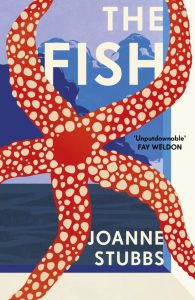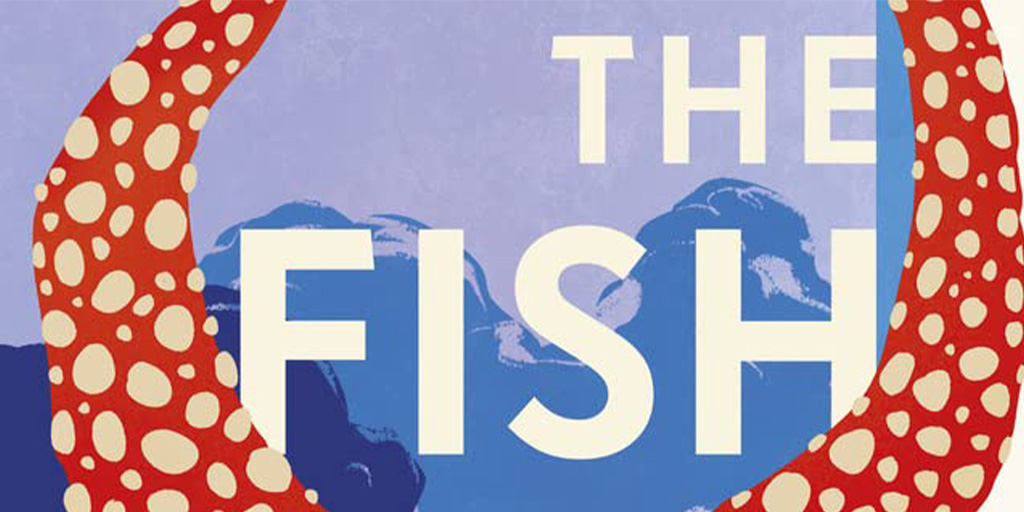
‘It’s a fish.’ Cathy finds a fish living in her rice paddy in Cornwall, which leads to the question: what would happen if fish invaded the land due to the effects of climate change? This is the first fish-on-land incident in a chain of events which author, Stubbs, terms a ‘big existential event’.
This is climate fiction – the ascendent fiction genre. Climate fiction focuses on the effects of climate change on characters and societies, and uses the themes of speculative science-fiction to address the economic, political and social issues of the day.
But The Fish does not search for the reasons behind this fishy invasion. Instead, it focuses on the everyday tribulations of its three main characters in the context of this ‘big existential event’: a young man coming to terms with the possibilities of his future as he comes up to university age in New Zealand (Ricky); a woman questioning her faith and place in the world in Kuala Lumpur (Margaret); and Cathy, who feels the strain of distance from her partner, molecular biologist Ephie, who works away from home due to the fish.
As the plot progresses, these everyday tribulations are amplified by encounters with fish and other once-sea-creatures. Cathy argues with Ephie on the way back from seeing family. The conversation, as with those that follow, is full of interesting turns of phrase and light humour, but is punctuated by the sight of a beach covered in bright, orange starfish. Ricky and his friend Kyle get drunk; we discover that both characters are affected by their parental relationships. The session is interrupted by the sighting of thousands of fish escaping from a shipwrecked boat’s nets onto the land. Meanwhile, Margaret visits the red-light district in KL to pass on her religious teachings to those she believes need it. We see how her faith is being tested. The scene is ended by the necessity to wade through water to return to her Church.
The story continues in this vein. The severity of the characters’ personal issues increases in proportion to the effect of the fish on society. It is the characters’ responses to these trends, however – particularly those of Margaret and Cathy – which demonstrate the difficulty of dealing with everyday problems in the face of big existential events. Though the germ of the idea for The Fish was formed in 2016, it brings to mind the 2020 pandemic.
The reader is left wondering where the central plots of the novel are going, what the personal trials are leading to, whether the fish have any direct effect on the characters’ big decisions, and even why Stubbs has chosen these three characters to follow during the invasions.
Climate fiction is the next big thing out of necessity. If art’s purpose is to reflect society in a way that only a given form can, then society’s biggest concerns must be a big part of the output of that form. This makes speculative fiction a fertile ground for exploration. However, perhaps an opportunity has been missed here to explore the reasons behind the invasion and its potential effect. Climate change is mentioned in a superficial way. We never discover why the threat has arisen, nor is it suggested what the characters or society can do to counter it.
Instead, we are left with what feel like random developments in the characters’ lives, and none of the stories feel complete. Even Ricky, who is perhaps most affected by the fish for the better – he is inspired by the negative public reaction to the fish to go to university – doesn’t show urgency to change his behaviour in light of developments. Meanwhile, Cathy and Margaret are disgusted by the fish, and let their revulsion negatively affect their lives. Margaret is deeply fearful even before the negative effects of the invasion are discussed. At times, her view echoes broader, conservative opinion.
If Stubbs set out explore how humans have the capacity to worry about ‘big existential events’ when they also face everyday problems, she has succeeded. Perhaps the conclusion is that in the most part, humans tend to care only about what affects them directly. This is a sad conclusion, but one we should fight, given that it can only lead to societal failure.
